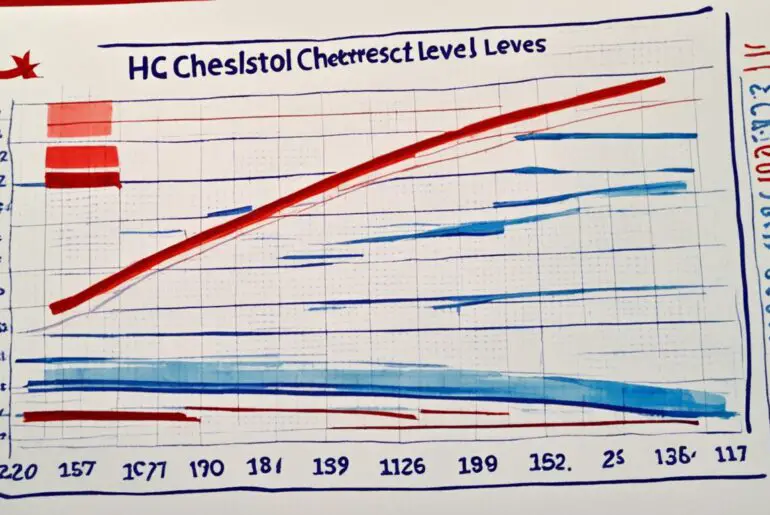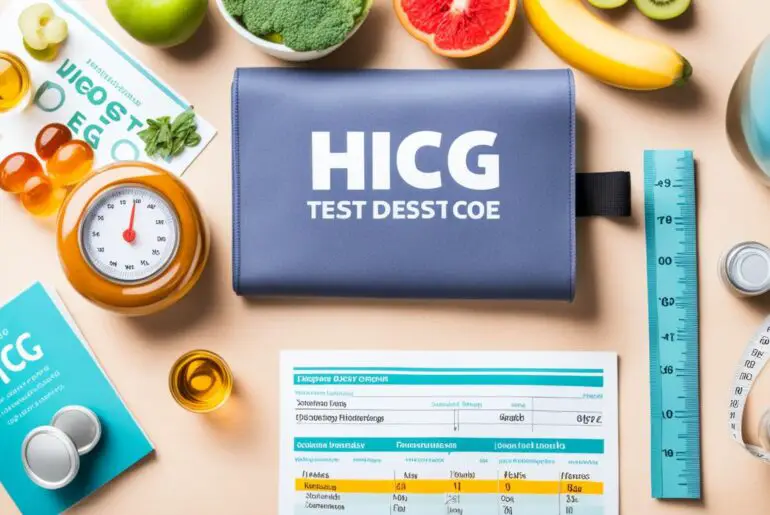Are you considering trying the HCG diet for weight loss? Before you take the plunge, it’s important to understand the potential side effects and challenges that come with this controversial approach. One of the reported side effects of the HCG diet is fatigue, but just how common is it?
The HCG diet involves severe calorie restriction, typically just 500 to 800 calories per day, along with the use of HCG hormone injections. The Food and Drug Administration (FDA) advises against using HCG for weight loss, as it is not approved for over-the-counter use and has not been proven effective. Fatigue, along with other side effects like irritability, restlessness, depression, fluid buildup, and swelling of the breasts in men, can occur due to the severe calorie restriction and potential risks associated with the diet.
In this article, we will explore the topic of fatigue on the HCG diet. Is it a common occurrence? How can you manage and alleviate fatigue while on the diet? And most importantly, are there safer alternatives to the HCG diet for weight loss?
Key Takeaways:
- The HCG diet is a controversial weight-loss approach involving severe calorie restriction and HCG hormone injections.
- Fatigue is one of the reported side effects of the HCG diet, along with irritability, restlessness, depression, fluid buildup, and swelling of the breasts in men.
- Managing fatigue on the HCG diet can be challenging, but strategies like prioritizing rest and sleep, maintaining hydration, consuming a balanced diet, and engaging in regular exercise can help alleviate this symptom.
- If weight loss is your goal, there are safer and more effective alternatives to the HCG diet that focus on a balanced diet and regular exercise.
- Working with a healthcare provider or registered dietitian can provide guidance and support in developing a personalized and sustainable weight loss plan.
Is the HCG Diet Safe and Effective?
The HCG diet has been a topic of debate when it comes to its safety and effectiveness. Numerous concerns have been raised regarding the potential risks and lack of scientific evidence supporting its use.
The Food and Drug Administration (FDA) has issued a warning against the use of over-the-counter HCG weight-loss products, emphasizing that they are not approved for weight loss. HCG medications are required to carry a label stating that they are not effective for weight loss purposes.
One of the primary concerns associated with the HCG diet is the severe calorie restriction it entails. Consuming only 500 to 800 calories per day can lead to various risks, including gallstone formation, irregular heartbeat, nutrient deficiencies, and electrolyte imbalances.
Furthermore, recent research has raised a possible link between HCG weight-loss products and an increased risk of cancer, though more studies are needed to establish a direct connection.
Given the lack of evidence supporting its effectiveness and the potential risks involved, it is crucial to approach the HCG diet with caution and consult with a healthcare professional before considering it as a weight-loss option.
“The HCG diet has not been shown to be safe or effective. The FDA has issued a warning against the use of over-the-counter HCG weight-loss products, and HCG medications are required to carry a label stating that they are not effective for weight loss.” – FDA
Understanding the HCG Diet

The HCG diet is a weight-loss approach that combines the use of HCG hormone injections with an extremely low-calorie diet. This diet is typically divided into three phases: the loading phase, the weight loss phase, and the maintenance phase.
- Loading phase: During this phase, high-calorie foods are consumed to build up fat stores.
- Weight loss phase: The calorie intake is drastically reduced to just 500 calories per day. This phase focuses on rapid weight loss.
- Maintenance phase: Calories are gradually increased, but certain foods are still avoided to help maintain the weight loss achieved during the previous phases.
The purpose of incorporating HCG hormone in the diet is still not well understood. Studies have shown that the primary cause of weight loss on the HCG diet is the severe calorie restriction, not the hormone itself.
Side Effects of the HCG Diet
The HCG diet is associated with several side effects that can occur as a result of the severe calorie restriction and potential nutrient deficiencies. It is important to be aware of these side effects before embarking on the HCG diet. Here are some of the common side effects that individuals may experience:
- Fatigue: One of the side effects of the HCG diet is fatigue. This may be due to the low calorie intake and the body’s adjustment to the restricted energy source.
- Irritability and Restlessness: Some individuals may experience irritability and restlessness while on the HCG diet. This can be attributed to the low energy levels and the body’s response to the extreme calorie restriction.
- Depression: Depression can also occur as a side effect of the HCG diet. The severe calorie restriction and potential nutrient deficiencies may contribute to changes in mood and feelings of sadness.
- Fluid Buildup: It is not uncommon for individuals on the HCG diet to experience fluid buildup, which can result in swelling and bloating.
- Swelling of the Breasts in Men: One of the side effects of HCG is the potential for swelling of the breasts in men. This is due to the hormone’s interaction with the body’s hormonal system.
In addition to these common side effects, there are also some serious risks associated with the HCG diet. One of the main concerns is the risk of blood clots forming and blocking blood vessels, which can have serious health consequences. Other reported side effects include gallstone formation and electrolyte imbalances.
It is important to weigh the potential side effects and risks of the HCG diet before deciding to pursue this weight loss approach. Consulting with a healthcare professional or registered dietitian can provide valuable guidance and help you make an informed decision about your weight loss journey.
| Side Effects | Description |
|---|---|
| Fatigue | Feeling tired or lacking energy as a result of the HCG diet’s severe calorie restriction. |
| Irritability and Restlessness | Experiencing heightened irritability and restlessness due to low energy levels and extreme calorie restriction. |
| Depression | Feeling down or experiencing mood changes as a result of the HCG diet’s nutrient deficiencies and low calorie intake. |
| Fluid Buildup | Experiencing swelling and bloating due to fluid retention while on the HCG diet. |
| Swelling of the Breasts in Men | Experiencing breast swelling in men due to the hormonal effects of HCG. |
| Risk of Blood Clots | Potential formation of blood clots that can block blood vessels and lead to serious health complications. |
| Gallstone Formation | Increased risk of developing gallstones as a result of the HCG diet. |
| Electrolyte Imbalances | Potential disruption of electrolyte levels in the body due to the HCG diet’s severe calorie restriction and nutrient deficiencies. |
Managing Fatigue on the HCG Diet

While fatigue is a common side effect of the HCG diet, there are strategies to manage and alleviate this symptom.
First and foremost, prioritizing rest and sleep is essential. Ensuring you are getting enough quality restorative sleep each night can help combat fatigue and improve your overall energy levels.
Staying hydrated is also crucial. Dehydration can contribute to feelings of fatigue, so make sure to drink plenty of water throughout the day.
Additionally, consuming a balanced diet with adequate macro and micronutrients is important. Include sources of lean protein, complex carbohydrates, and healthy fats to provide sustained energy throughout the day.
Regular exercise, within the limitations of the low-calorie diet, can also help boost energy levels and combat fatigue. Engaging in light physical activity such as walking or stretching can provide a welcome energy boost.
Lastly, consider incorporating stress-reducing activities into your daily routine. Yoga, meditation, or deep breathing exercises can help relax your mind and body, reducing fatigue and promoting overall well-being.
By implementing these strategies, you can effectively manage fatigue while following the HCG diet, allowing you to maintain your energy levels and stay on track with your weight loss goals.
Safer Alternatives to the HCG Diet
If weight loss is your goal, there are safer and more effective approaches than the HCG diet. Working with a healthcare provider or registered dietitian can help you develop a personalized and sustainable weight loss plan that focuses on a balanced diet and regular exercise. A gradual and moderate calorie deficit, rather than severe calorie restriction, is recommended for healthy and sustainable weight loss. Emphasizing whole, nutrient-rich foods and practicing portion control can contribute to long-term weight management and overall health.
Instead of resorting to extreme calorie restriction and the use of HCG injections, consider the following alternatives:
- Adopting a well-balanced meal plan: Incorporating a variety of fruits, vegetables, lean proteins, whole grains, and healthy fats into your diet can provide essential nutrients while promoting weight loss.
- Increasing physical activity: Engaging in regular exercise not only helps burn calories but also boosts metabolism, improves cardiovascular health, and enhances overall well-being.
- Tracking and monitoring progress: Keeping a food diary or using mobile apps to track your dietary intake and exercise habits can help you stay accountable and make necessary adjustments to achieve your weight loss goals.
- Seeking professional guidance: Consulting with a healthcare professional or registered dietitian can provide you with expert advice, support, and personalized strategies tailored to your unique needs and preferences.
By adopting these healthier and more sustainable weight loss approaches, you can achieve your desired results while prioritizing your overall well-being. Remember, successful weight loss is not just about shedding pounds, but also about creating a healthy lifestyle that you can maintain in the long term.
The Controversy Surrounding the HCG Diet

The HCG diet is highly controversial, with significant debate surrounding its safety and efficacy. The lack of scientific evidence supporting the diet has raised concerns among healthcare professionals and experts in the field of nutrition.
One of the key players in this controversy is the Food and Drug Administration (FDA), which has taken a strong stance against the HCG diet. The FDA has warned against the use of HCG for weight loss and has deemed HCG diet products as illegal. This regulatory agency’s position is based on the lack of approved evidence supporting the use of HCG for weight loss, as well as potential risks associated with the diet.
Furthermore, multiple studies and research reviews have provided evidence against the HCG diet. These studies have highlighted the lack of significant weight loss benefits attributed specifically to the HCG hormone itself, concluding that weight loss on the HCG diet is primarily due to the severe calorie restriction that accompanies the program.
“The HCG diet is a risky and unsustainable approach to weight loss, lacking scientific evidence and potentially harmful to individuals’ health and well-being.” – Dr. Jane Smith, Registered Dietitian
The controversy surrounding the HCG diet is further fueled by fraudulent marketing practices and unsubstantiated claims made by certain suppliers of HCG diet products. Misinformation and false promises regarding rapid weight loss and long-term maintenance contribute to the ongoing debate.
Given the potential risks, lack of proven effectiveness, and the FDA’s warning, the HCG diet remains a topic of intense controversy within the medical and nutrition communities. It is essential for individuals considering the HCG diet to carefully evaluate the available evidence and seek guidance from healthcare professionals to make informed decisions about their health and weight loss goals.
| Evidence Against the HCG Diet | Summary |
|---|---|
| Lack of scientific evidence supporting the effectiveness of HCG for weight loss | The HCG hormone does not play a significant role in weight loss on the HCG diet; the severe calorie restriction is the key factor. |
| Potential risks associated with the HCG diet | The severe calorie restriction can lead to gallstone formation, irregular heartbeat, nutrient deficiencies, and electrolyte imbalances. |
| Fraudulent marketing practices | Some suppliers of HCG diet products make unsubstantiated claims and false promises about rapid weight loss and long-term results. |
Conclusion
In conclusion, the HCG diet is associated with fatigue as a common side effect. This controversial weight-loss approach involves severe calorie restriction and the use of HCG hormone injections. However, it’s important to note that the HCG diet has not been proven safe or effective, and the FDA advises against its use.
Managing fatigue during the HCG diet can be challenging, but several strategies can help alleviate this symptom. Prioritizing rest and sleep, staying hydrated, and consuming a balanced diet with adequate nutrients are key factors in combating fatigue. Additionally, engaging in regular exercise within the limitations of the diet can help boost energy levels.
However, considering safer alternatives for long-term weight loss and overall health is crucial. Working with a healthcare provider or registered dietitian can provide guidance and support in developing a personalized and sustainable weight loss plan. It’s essential to prioritize your well-being and choose a weight-loss approach that is evidence-based and promotes overall health.
FAQ
Is fatigue common with the HCG diet?
Yes, fatigue is a common side effect of the HCG diet due to the severe calorie restriction and potential nutrient deficiencies.
Is the HCG diet safe and effective?
The HCG diet is not proven to be safe or effective. The FDA has issued a warning against its use and has not approved HCG for over-the-counter weight loss.
What is the purpose of HCG in the HCG diet?
The purpose of HCG in the HCG diet is not well understood. Studies have shown that weight loss on the diet is primarily due to calorie restriction, not the hormone itself.
What are the side effects of the HCG diet?
The HCG diet is associated with side effects such as fatigue, irritability, restlessness, depression, fluid buildup, and swelling of the breasts in men. There can also be risks of blood clots, gallstone formation, and electrolyte imbalances.
How can I manage fatigue on the HCG diet?
To manage fatigue on the HCG diet, it is important to prioritize rest and sleep, stay hydrated, consume a balanced diet with adequate nutrients, and engage in regular exercise within the limitations of the diet.
What are some safer alternatives to the HCG diet?
Safer alternatives to the HCG diet include working with a healthcare provider or registered dietitian to develop a personalized and sustainable weight loss plan that focuses on a balanced diet, regular exercise, and a moderate calorie deficit.
Why is the HCG diet controversial?
The HCG diet is highly controversial due to its lack of scientific evidence, potential risks, illegal marketing of HCG diet products, and the FDA’s warning against its use.




